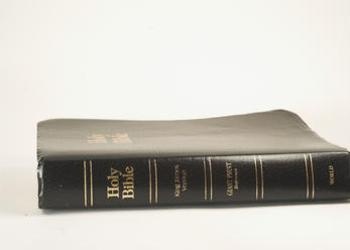Defeating Doubt Through Faith

When it comes to religion, it is easy to become overwhelmed in today's fast paced world. Human ingenuity has allowed for many major technological advances in the past few decades. Knowledge of history and any idea of religion is just a few keystrokes away on any search engine on the Internet.
A plethora of opinions and new discoveries in science lead many away from believing in our Creator, in His Son Jesus Christ, and the basic human need for any type of higher power to influence our lives. Christians are more susceptible to doubting in their Savior than ever before. After all, how can we physically prove that He really died and then rose from the dead?
The dead, walk?
Doubting in Christianity is nothing new. It is something that all of us face at times. A disciple of Jesus named Thomas, a man who was with Him for over three years, doubted that Christ had risen after the third day in the grave. He needed proof before he was going to believe a story like that!
It defied human logic and understanding that a man who was dead could rise up and walk. Surprisingly, not long before Jesus died, He resurrected a man named Lazarus who had been dead for three days. If Thomas could doubt the power of God to raise His Son to life after seeing Jesus' works for years, how easy could it be with all of Satan's influence for Christians today to doubt in a risen Savior? Unfortunately, it can be very easy to doubt if Christians do not build up a strong defense of faith.
Paul, an apostle of Jesus Christ, wrote "Now faith is the substance of things hoped for, the evidence of things not seen," (Hebrews 11:1). Faith is our spiritual sight to see the things that God desires for us to see. He has called many to see through faith that Jesus did die for the sins of those who would believe in Him. That God resurrected His Son from death to conquer it for all those who die with Him in baptism.
Seeing by faith
Can this be proven with human wisdom or knowledge? No. The truth of Christ's death is veiled to people who God has not called to understand. The apostle Paul told us this as well, "…but we preach Christ crucified, to the Jews a stumbling block and to the Greeks foolishness," (1 Corinthians 1:23).
Should this, or the world around us, discourage us from believing in Jesus as our risen Savior? No! We should be encouraged by the fact that God has opened our spiritual eyes and can see through the sight that the faith in God gives us. We are now able to see in God's word, the Bible, that all the proof we need is right in front of us.
We all sometimes doubt the hope that we have in Christ, and it may only get harder to keep up our faith. What we can do is bolster our faith constantly by studying the word of God. God is able to let you see the undeniable truth through spiritual eyes by giving you His Holy Spirit. You can be like Thomas; when he saw Christ he believed immediately and lost all doubt. So when you see the truth you can also believe, and through faith, all doubt will be washed away.
